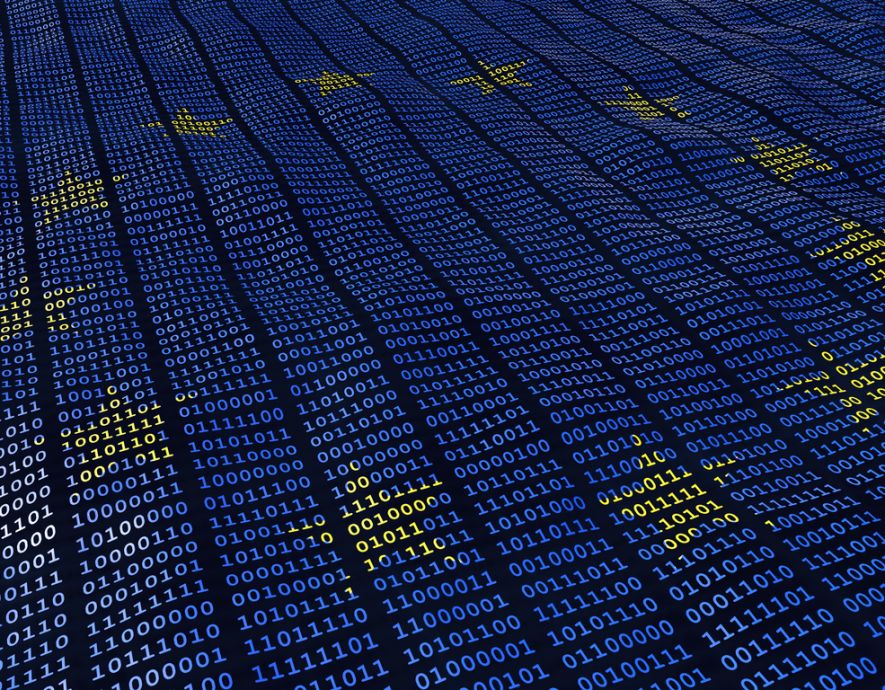
- Home
- Digital transformation
- China, the all-out offensive
China, the all-out offensive


5G networks, standardisation, proposal for a new internet… For several years, China has been multiplying international initiatives in the fields of digital technology and cybersecurity. An « all-out » activism that responds to a well-organized strategy and to clearly identified needs.
A very broad definition of cybersecurity
If China appears to be very active in the field of cybersecurity, it is first of all because it has a much more extensive definition of it than that used in the West. While in the West cybersecurity has long been limited to the security of the hardware and logic layers, summarized by the « CIA » triad (Confidentiality, Integrity and Availability), in China it also covers the semantic layer, and in particular « the control of content, » emphasised Rogier Creemers, a researcher at the Leiden University (Netherlands) during the last International Cybersecurity Forum (FIC). The use of a social network like Facebook to promote potentially erroneous information during the 2016 American election would thus have been a cybersecurity issue for China, which was not the case for the United States, in the absence of a cyberattack.
This context enables us to understand initiatives such as the ‘New IP’, the « new generation » internet protocol that China and Huawei had presented in 2019 before the International Telecommunication Union. Beyond its ability to transport ever larger data faster than the traditional TCP/IP protocol, this new protocol proposed to provide authorities with a « kill switch » to stop the movement of data leaving from or going to an IP address. Similarly, it is significant that several of the groups behind APTs (Advanced Persistent Threats) engaged in cyber-offensive actions from China have set themselves—alongside their economic or technological objectives—real political objectives, particularly in the context of the fight against what the Chinese authorities call the « 5 poisons »: Tibetans, Uyghurs, the Falun Gong sect, the Taiwanese independence movement, and the pro-democracy movement in China.
Independence still incomplete
From the Chinese perspective, the desire for political and social control at home is coupled with a desire for technological and commercial independence from the outside. This objective is still far from being achieved, as illustrated by the case of Huawei that—after a seemingly irresistible rise in the smartphone sector—suffered severely from the ban on installing Google’s operating system and services on its smartphones, and then from the cancellation of its orders with the Taiwanese semiconductor manufacturer TSMC, the world leader in the field. After noticing that globalisation was less favourable to them, the CCP authorities decided to put innovation and technological autonomy at the heart of the 14th five-year plan (2021-2025), adopted on 11 March by the Chinese National People’s Congress.
Traditionally, China has been carrying out a permanent technology watch—thanks in particular to the agents of the Ministry of Science and Technology—in order to target innovations that could be of interest to its industry and economy. At the same time, it benefits from an exceptional digital strike force thanks to its concept of « civil-military fusion », which mobilises all the forces of civil society in the service of its political and economic objectives, from the Chinese digital giants—the « Batx » (Baidu, Alibaba, Tencent, Xiamo)—to universities. However, the world’s second largest economy is still lagging behind in terms of skills. To address this need, it launched in 2017 the construction of a National Cybersecurity Talent and Innovation Base in Wuhan, again with the aim of reducing its dependence on foreign technologies. To this end, the centre will train students and professionals and act as a talent and innovation incubator.
The temptation of withdrawal?
The birth of this centre in Wuhan is also a symptom of a de-globalisation that is increasingly accepted by China, which wants to be able to keep its hand on technical capabilities that the West may well deny it tomorrow—as evidenced by the American sanctions since the Trump era, which are still ongoing under the presidency of Joe Biden. This paradigm shift is thus present in the latest five-year plan in the form of the « dual circulation » concept, which emphasises a growing and more innovative domestic market that is also more controlled, alongside a persistent opening to the world. For example, over the past year, the Chinese authorities have regained control of large tech companies such as Alibaba, Meituan, and Didi, which have been fined heavily for abuse of a dominant position. New laws on the protection of personal data or on data security have also come into force. These regulations will force companies to process and store Chinese data in China and may in the future prevent or make it more difficult for companies with Chinese data to list overseas. This change is already underway, as shown by the case of the ride-hailing specialist Didi, for which problems have been piling up since its listing on the New York Stock Exchange on 30 June.
The tendency is thus for China to seek more readily at home what it used to pursue throughout the world, opening the door to the temptation of withdrawal. It should be remembered that it was economic necessity that prompted Deng Xiaoping to implement his policy of « reform and opening up » in 1978 to attract capital and know-how from developed countries. More than 40 years later, China has become a leading country in many high-tech sectors and could afford to see the total market capitalisation of its 6 largest tech companies melt by $1,000 billion in less than a year without batting an eye. The notion of « necessity » has changed. The question is how Chinese activism will evolve as « made in China » innovations multiply.
the newsletter
the newsletter



